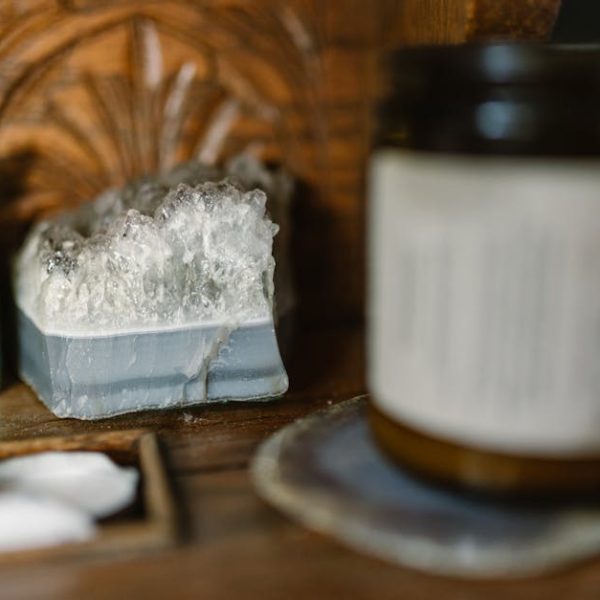Few experiences can feel as intrusive or unsettling as discovering a rodent infestation in your home. These small, hairy intruders can quickly turn your peaceful abode into a source of stress and concern. Luckily, there are effective home remedies to not only get rid of, but also prevent such invasions. From using peppermint oil to utilizing natural predators, the following advice will help you reclaim your living space.
Understanding the Problem: Signs of Mice Infestation
Mice are naturally stealthy creatures and might already have set up residence in your home before you even take notice. But several signs can lift your suspicion: droppings around your home, gnawed boxes or furniture, holes in the walls or floor, and skulking sounds in the walls.
When faced with these warning signs, swift action is crucial:
- Don’t ignore the signs: Even a single sighting of a mouse or droppings is usually indicative of an infestation.
- Start inspecting your home from the basement and attic, moving to other rooms.
- Plug in any visible holes with steel wool or caulk to nip any planned invasions in the bud.
Pro Tip⭐: Mice are attracted to places where food and warmth are readily available. The kitchen, attic, and storage rooms top their list.
Checklist:
- Droppings
- Gnawed furniture or boxes
- Scratching noises in the walls or ceiling
- Unusual pet behaviors
Peppermint Oil: A Natural Deterrent for Mice
Did you know peppermint oil is more than just a refreshing aroma? Mice can’t stand its strong scent. Soak cotton balls in peppermint oil and place them in areas where mice usually roam. You can also fill sachets with cotton balls soaked in oil and place them in strategic points.
Pro Tip⭐: Replace the cotton balls every week to maintain the strength of the peppermint aroma.
In comparison with commercially available repellents, peppermint oil offers a natural, non-toxic, and eco-friendly deterrent that is harmless to children and pets.
Other Essential Oils and their Effectiveness
Essential oils such as eucalyptus and clove can also keep mice at bay. Their strong smells overwhelm the rodent’s highly sensitive sense of smell, making your home inhospitable. Use them the same way as peppermint oil: soak cotton balls and place them around the house.
Best Practice: Ensure to store these oils out of children’s reach. Also, remember to replace the cotton balls regularly to keep the scent strong.
Pros:
- Non-toxic
- Environmentally Friendly
- Pleasant aroma
Cons:
- Need for regular re-application
Next, we’ll look at how natural predators like cats and owls can be part of your strategy to deter mice.
Utilizing Natural Predators: Cats and Owls
One of the oldest and most effective ways to control mice is by using their natural predators. Cats, for instance, are expert hunters who will quickly pounce on any mice in their territory, deterring them from setting up residence in your home. Owls are equally as effective and can make a significant impact on controlling a mouse population in outdoor environments.
There are a few steps you can take to attract these predators:
- For cats, consider adopting a pet cat if you don’t already have one.
- To attract owls, setting up an owl box in your backyard can offer a safe shelter for these birds and encourage them to hunt in your vicinity.
Pro Tip⭐: Choose cats that come from a line of mousers if you’re specifically adopting for mice control. Not all cats possess strong hunting instincts.
Here are some other natural predators of mice that could help control an infestation:
- Snakes
- Foxes
- Eagles
- Hawks
Food Traps and Bait Stations: Non-Toxic Options
Food traps and bait stations offer a non-toxic and humane way to catch mice. They use appealing baits, such as peanut butter or cheese, to lure mice into a trap from which they cannot escape. Once trapped, you can release the mice at a distant location from your home.
Here’s a simple way to set up a bait station:
- Choose an appealing bait: Mice are primarily attracted to high-calorie foods like peanut butter, bacon, or chocolates.
- Proper trap positioning: Place the traps along the walls or in corners where you see signs of mice activity.
Best Practice: Check the traps regularly and reload with fresh bait. Always wear gloves when disposing of trapped mice to prevent diseases.
When you compare them with toxic rodenticides, food traps and bait stations are safer for kids, pets, and the environment.
| Method | Pros | Cons |
|---|---|---|
| Food Traps and Bait Stations | Non-toxic, Reusable, Can catch multiple mice in one go | Requires regular checking, Time-consuming |
| Toxic Rodenticides | Effective, Doesn’t require frequent checking | Harmful to non-target animals, Can lead to resistant populations of mice |
Dealing with mice infestation at home can be a challenge, but with the right strategies and understanding, you can effectively control and prevent this threat. The options presented aren’t just eco-friendly and humane, but also practical for different household conditions. These home remedies have been proven effective and can provide relief from persistent mouse invasions without putting your pets or family at risk. See which ones best fit your home situation and good luck in your mission!
Key Takeaway:
- Immediate action is crucial when signs of mice infestation are observed.
- Essential oils like peppermint, eucalyptus, and clove oil can deter mice due to their strong scents.
- Utilizing natural predators such as cats and owls can effectively control mouse infestations.
- Non-toxic options like food traps and bait stations are humane and safe ways to catch mice.
- The chosen pest control method should prioritize the safety of household members and pets.
Stay vigilant and proactive to keep your home mice-free. Remember, tackling any rodent problem involves a combination of methods to ensure effectiveness. By using natural remedies like essential oils, you are not only making your home a deterrent for mice but also contributing to an eco-friendly environment.
FAQs
Q: How often do I need to replace the essential oil soaked cotton balls?
A: It’s recommended to replace them once a week to maintain their strong scent, which is essential in deterring mice.
Q: I don’t want to adopt a pet cat. Are there any other natural predators that can help?
A: Yes, aside from cats, other natural predators like owls, snakes, eagles, and foxes can help control a mice infestation.
Q: What kind of bait should I use for the food traps?
A: Mice are primarily attracted to high-calorie foods. You can use items like peanut butter, bacon, or chocolates.
Q: Is there a risk of other animals getting into the food traps?
A: It’s a possibility, especially if you have other pets. Be sure to check traps regularly and make sure they are sited where they will only catch the intended pests.
Q: How can I make my home less attractive to mice?
A: Mice look for places with readily available food and warmth, so maintaining cleanliness, storing food properly, and sealing potential entry points can deter mice infestation.
Feel free to share this article with those who might find it helpful, and don’t hesitate to explore more posts on our website.






